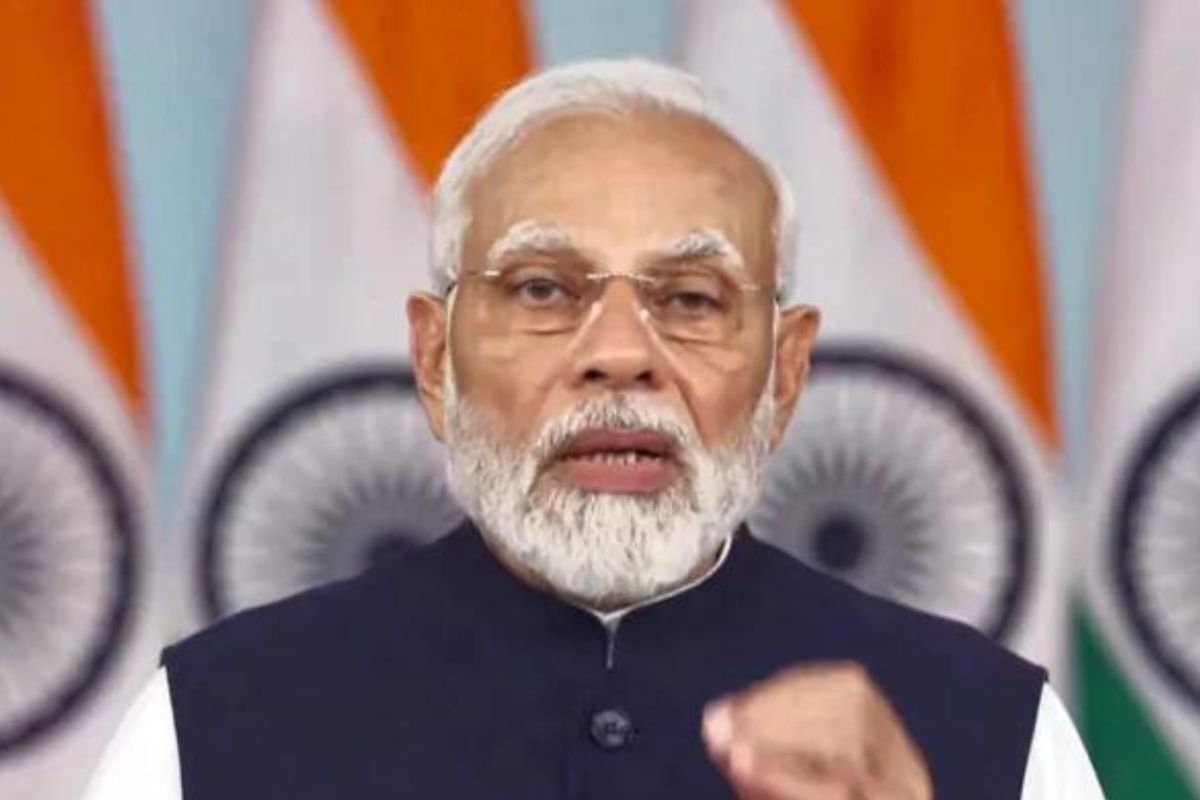Liquidity from global equity markets fuelling fresh investment in gold
The risk on trade in global markets is witnessing a huge rally in equities as well as gold.
Narendra Modi was addressing a post-Budget webinar on Agriculture and Cooperatives, the second in the series of 12 post-Budget webinars.

PM Modi. (Photo: Twitter)
Prime Minister Narendra Modi on Friday said until India overcomes challenges in the field of agriculture, the country cannot achieve the goal of development completely.
Narendra Modi was addressing a post-Budget webinar on Agriculture and Cooperatives, the second in the series of 12 post-Budget webinars organised by the government to seek ideas and suggestions for effective implementation of the initiatives announced in the Union Budget 2023-24.
He said the Union Budgets in the last eight-nine years had given high priority to agriculture. After the presentation of every Budget, it was admitted the Budget was for villages, the poor and the farmers. Before his government took over in 2014, he said, the Budget allocation for agriculture was less than Rs 25,000 crores, and today it has crossed the level of Rs 1.25 lakh crore.
Advertisement
India had to import foodgrains for many years after Independence, he said. The Indian farmers not only made the country self-sufficient in foodgrains, but even a food-exporting nation. The important issue, however, was that this self-sufficiency and export capability should not be limited to wheat and rice, he said.
The prime minister said during 2021-22, India had to spend Rs 17,000 crores on the import of pulses, Rs 25,000 crores on value added food products and Rs 1.50 lakh crore on the import of edible oils. This meant that Rs 2 lakh crore were spent on the import of just these items, Mr Modi said.
If India was self-sufficient in these food items, this money would have gone to India’s own farmers, he said. In the last few Budgets, several decisions were announced to encourage these sectors. Minimum Support Prices (MSPs) have been increased and cultivation of pulses is being encouraged.
The number of food parks has been increased for food processing units and the objective of making India self-sufficient in edible oils is being pursued in Mission Mode, Mr Modi said.
He observed that private innovation and investment are keeping a distance from this sector which leads to low participation of India’s youth in the agricultural sector, compared to other sectors which are witnessing active participation and growth.
The prime minister highlighted that various announcements have been made in this year’s Budget to fill this lacuna. Drawing an analogy to the open platform of UPI, he mentioned the Digital Public Infrastructure platform in the agriculture sector and said there were immense possibilities of investment and innovation in Agri-Tech domains.
He listed out the opportunities such as improving logistics, making large markets more accessible, promoting drip irrigation through technology, installation of soil testing labs along the lines of medical labs. Mr Modi urged the youth to work towards delivering the right advice at the right time while creating a bridge of information between the government and the farmer about their innovations and also assisting in policy making.
The prime minister touched upon using drones for crop approximation while providing real-time information about weather changes. Referring to introduction of accelerator funds for agri-tech startups, he said the government is not only creating digital infrastructure but also preparing funding avenues.
He asked the youth and young entrepreneurs to move ahead and achieve their goals. India is home to more than 3000 agri-startups today compared to next-to-nothing nine years ago, he said.
The prime minister touched upon the International Year of Millets and said that its international identity is opening a gateway to the global market for Indian farmers. “The country has now identified coarse grains as Shri Anna in this budget,” the Prime Minister remarked.
“A new revolution is taking place in the cooperative sector of India,” the Prime Minister remarked as he pointed out that it is not limited to some states and some regions of the country anymore. He said that tax-related reliefs have been given to the cooperative sector in this year’s Budget which will benefit new cooperative societies engaged in manufacturing.
He said that TDS will not be levied on cash withdrawals up to Rs 3 crore by cooperative societies. He mentioned the important decision of tax exemption given to the payment made by the sugar cooperative before 2016-17 and said that it will benefit the sugar cooperative to the tune of Rs 10,000 crore.
Advertisement